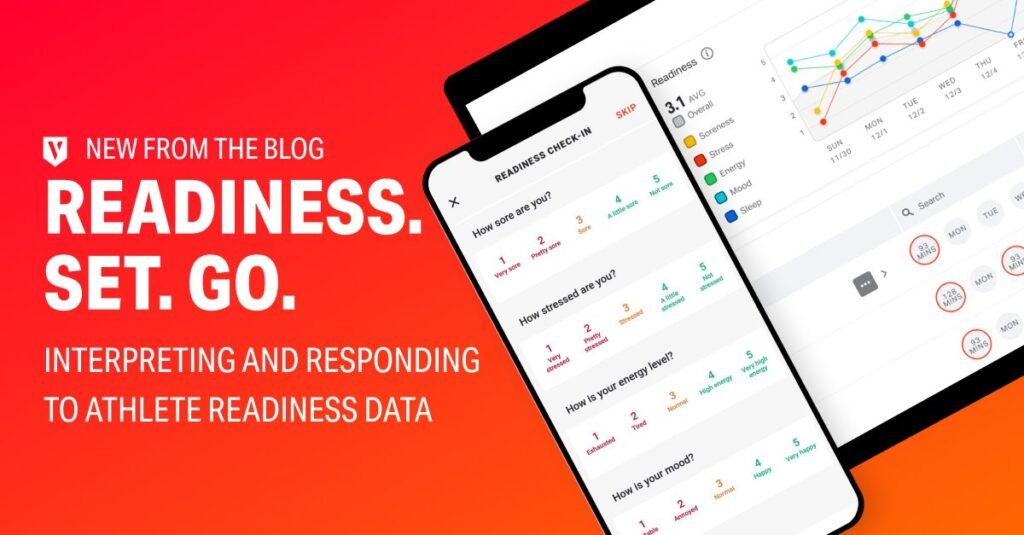[ad_1]

Sleep
Whether you’re in the classroom, on the battlefield, in the office, or on the athletic fields, sleep can impact your performance in many ways.
Sleep plays an important role in your cognitive function throughout the day, and it also affects the body’s ability to recover and heal. The only time of day that our bodies are in a true state of recovery is while we’re asleep. It is recommended to get 6-8 hours of sleep every night.
Lack of sleep and poor quality sleep decreases focus, concentration, decision-making, critical thinking, and reaction time. It also increases cortisol levels, which is a stress response that impairs the body’s ability to repair and grow tissue. Athletes who sleep less than 8 hours per night have 1.7x greater risk of being injured than those who get 8 hours or more.
The readiness check-in can help you identify athletes that may be struggling to meet their sleep needs. Their lack of sleep could be a result of poor time management. This is a great opportunity to provide guidance on how they can structure and manage their time more efficiently to ensure full, restful sleep.
These are helpful tips for anyone that struggles to fall asleep or stay asleep:
-
The bedroom should be cool, and as dark and quiet as possible
-
Eye masks and earplugs can be useful, especially if sharing a room
-
Try using a white noise machine
-
Create a good sleep routine by going to bed and waking at the same time each day (as permissible)
-
Avoid screens in bed and close to bedtime
-
Avoid watching the clock
-
Avoid caffeine approximately 4-5 hours prior to sleep (this may vary among individuals)
-
Avoid consuming alcohol and recreational drugs
-
Avoid consuming too much fluid a couple hours before going to bed. This may result in waking up to use the bathroom periodically, interrupting or inhibiting optimal sleep patterns.
-
Napping can be useful; however, naps should generally be kept to less than one hour and not too close to bedtime as it may interfere with the ability to fall asleep
If you identify that your athlete(s) could improve their sleep, use this opportunity to educate them on the importance of sleep and how to achieve a better night’s sleep.
By monitoring your athletes’ readiness scores, you have the power to stay on top of their health and wellbeing.
You can make educated decisions and last-minute changes to improve their health and performance. You can often predict behavior patterns and reactions depending on the time of year or season, however, some factors can be less predictable and can be indicative of underlying factors that could be decreasing performance.
It is always best practice to refer your athletes to a professional if you feel their situation is out of your scope of practice or if you feel someone else may be better suited to handle the challenges they are facing.
If you are a member of the Volt Family, remember that we’re here to help you! If you have further questions on our readiness check-in and how to apply it to your coaching practice, please reach out to support@voltathletics.com!
Click here to get Pull-up Resolution discounted price while it’s still available…
[ad_2]



3 Comments
Khám phá thế giới giải trí trực tuyến đỉnh cao tại MM88, nơi mang đến những trải nghiệm cá cược thể thao và casino sống động.
kuwin sở hữu kho game đa dạng từ slot đến trò chơi bài đổi thưởng, mang đến cho bạn những giây phút giải trí tuyệt vời.
Đến với J88, bạn sẽ được trải nghiệm dịch vụ cá cược chuyên nghiệp cùng hàng ngàn sự kiện khuyến mãi độc quyền.